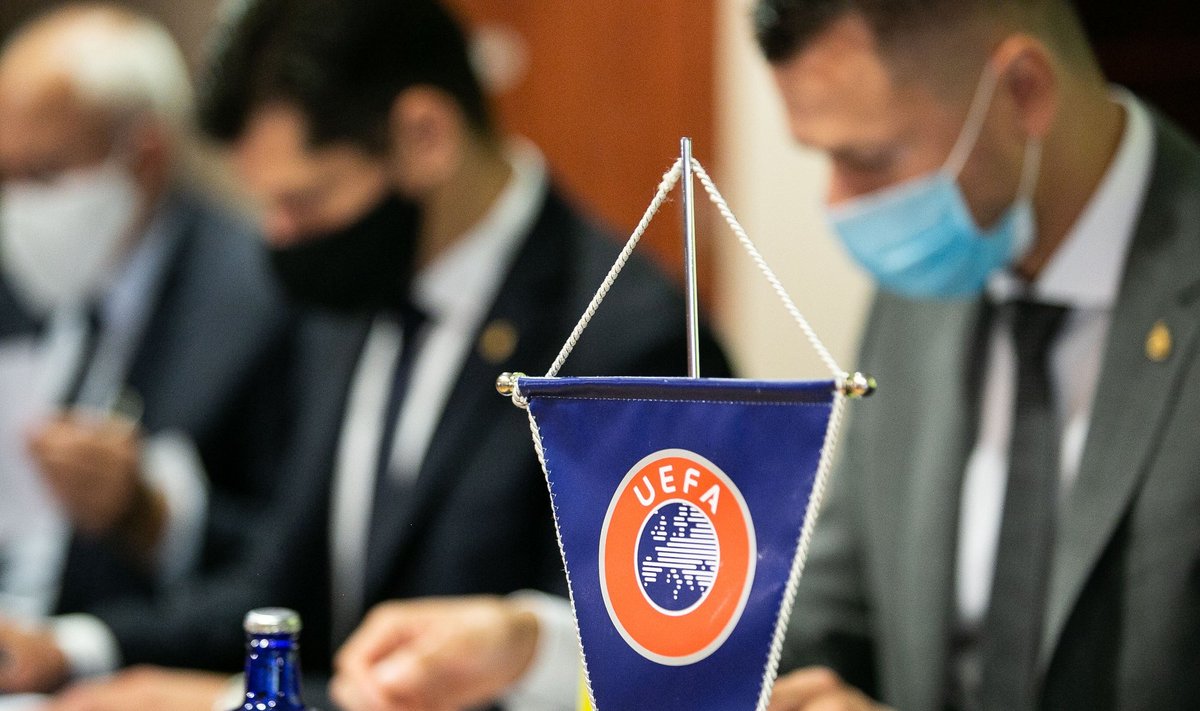According to LFF President Tomas Danilevicius, the final draft statutes were agreed on at the Executive Committee's meeting on Wednesday and are expected to be approved at the federation's extraordinary conference on December 21.
"We had a considerable discussion on the issue of impeccable reputation, which UEFA and FIFA are proposing to include (into the statutes)," Danilevicius told a news conference on Thursday.
"After discussing this concept, we came to the conclusion that UEFA will turn to independent lawyers and ask them to give an opinion on whether this concept complies with all Lithuanian laws," he said.
The federation has drafted the statutes together with two international football organizations, FIFA and UEFA.
Luca Nicola, head of national associations governance and global institutions at UEFA, said that these nuances are expected to be clarified with the lawyers before the LFF extraordinary conference in December so that the provision can be included in the statutes.
The statutes will be relevant when planning new elections of the federation's president, Executive Committee and other governing bodies next spring.
The current reputation requirements for the LFF leadership is an issue that has caused the most controversy, as the organization's current statutes allow individuals convicted of minor or less serious crimes to be elected to its governing bodies, provided that their convictions have expired.
Four individuals with past conviction records, including Arunas Pukelis, are currently sitting on the LFF Executive Committee.
The new statutes will include the requirement "not to have been found guilty of any criminal offence (and to) have an impeccable integrity record", according to Nicola.
"That's our proposal and it's our opinion that is in line with Lithuanian legislation, but again, this will be checked (...). Anyone, who has been found guilty of a criminal offence in the past is not eligible to sit on the Executive Committee," he said.
The LFF began to work on its new statutes after the parliament began to consider temporarily placing the federation under the state's direct management so as to amend the document, which sets out the organization's basic principles, on its own initiative.
In recent years, the LFF has been criticized for poor sports results and for some of its officials' alleged links to the criminal world.
According to Danilevicius, the LFF plans to hold its 2023 electoral conference by April 30 to elect its new president and vice-president, and the Executive Committee and independent legal bodies.
The new statutes will also put in place changes to the election and composition of the Executive Committee. The committee will have 16 members, delegated by the country's regional football organizations and several football associations.
The LFF Conference, the federation's highest governing body, be composed of 32 members, also delegated from regions and individual organizations.
